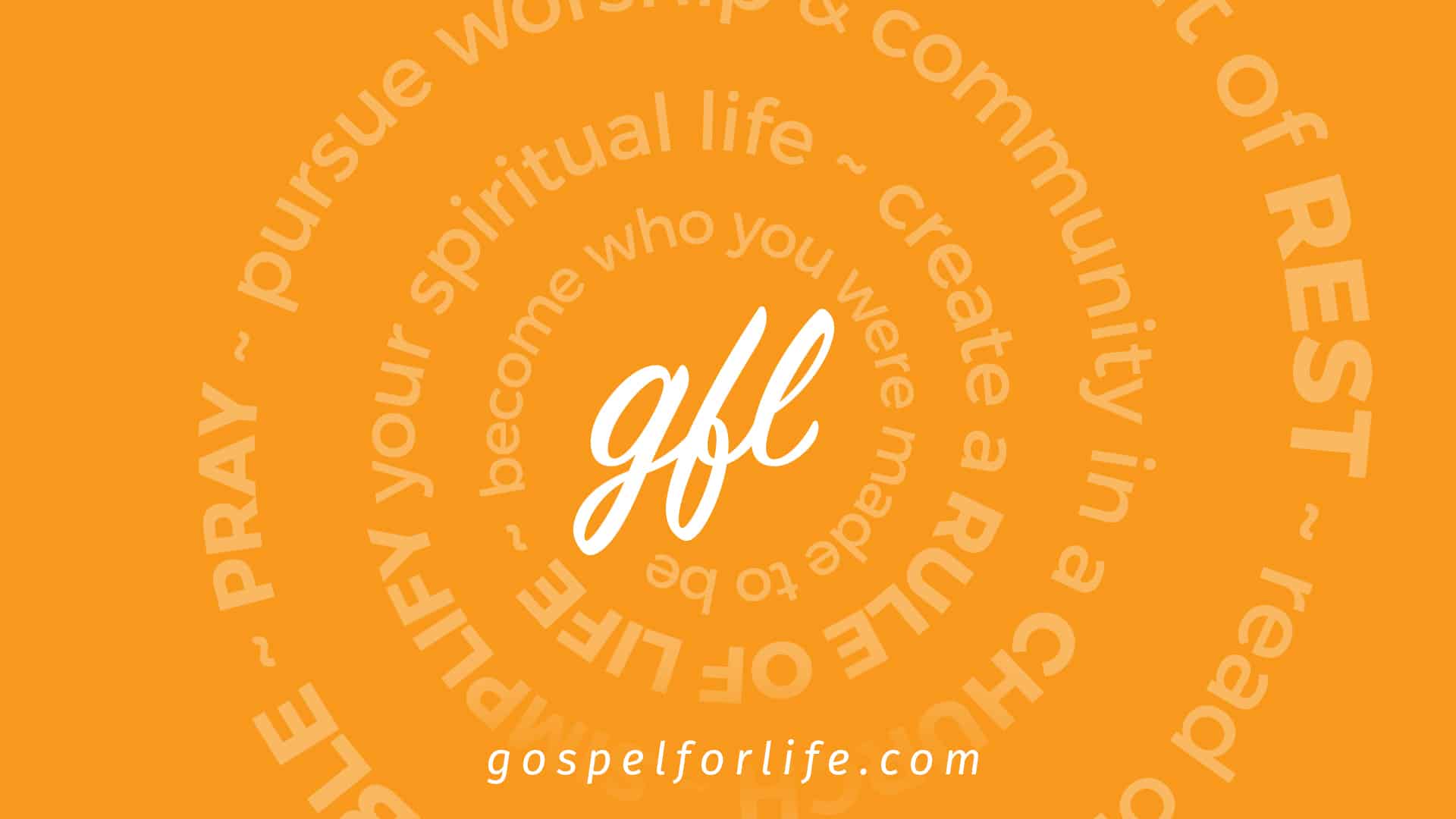Prayer (Colossians 3:2-4)

Big Idea: Build a praying habit because of what’s at stake.
So here’s the honest truth when it comes to prayer: we’re all beginners. I’ve never met a single person who has this prayer thing figured out. I love the story of Sinclair Ferguson, a Scottish theologian and pastor. The editor of a publishing company asked him to write a book on prayer. He felt flattered. But in a moment of honesty, he told the editor that the author of such a book would need to be older, more seasoned, and more prayerful. He even suggested some names. The editor smiled. He had already had asked the well-seasoned Christian leaders that Ferguson had mentioned. They, too, had declined for the same reasons. “Wise men,” Ferguson says. “Who can write or speak at any length easily on the mystery of prayer?”
Prayer is difficult. It requires focus, which is a scarce resource. We’re easily distracted. It’s hard enough for us to ask a friend for what we need, never mind God. And what good does it do anyway? Does God really hear, or are we just talking to ourselves? It seems sometimes like we’re talking to the air. These are some of the thoughts we have — or at least that I sometimes have — when I pray.
Here’s the other truth about prayer: we need it. It’s a gift. When Obama was president, he received tens of thousands of letters, emails, and parcels each day. They passed through The Office of Presidential Correspondence. Many of their letters start with phrases like, “I know no one will read this.” But someone does. Dozens of staffers, interns, and volunteers read through the correspondence. Out of the tens of thousands of pieces of correspondence, 300 would be selected for the Director of Presidential Correspondence. Out of those 300, 10 would be selected for the President’s daily briefing.
If you wrote to the President, you would have a very small chance of getting your message through. But you have immediate, unfiltered access to the God who holds the entire world together.
Warren Buffett is one of the greatest investors in our day, and he is also the second richest man in the world, with an estimated worth of $44 billion. In June 2005, Buffett decided to help raise money for his charitable foundation by offering an online auction for someone to have lunch with him. The winning bid was $351,100—the price of one-time access. I wonder if we recognize the value of our access, round the clock, to God himself?
We’re all beginners when it comes to prayer. At the same time, prayer is a privilege. It’s a gift.

So for all of you who struggle and stumble to pray, today is for you. I want to look at a simple passage with you. We just read it:
Continue steadfastly in prayer, being watchful in it with thanksgiving. At the same time, pray also for us, that God may open to us a door for the word, to declare the mystery of Christ, on account of which I am in prison — that I may make it clear, which is how I ought to speak. (Colossians 4:2-4)
Here’s what we learn:
Build a Prayer Habit
Paul writes, “Continue steadfastly in prayer.” What is Paul saying here?
There are some things that we tend to do in fits and starts. We decide to run, and so we go for a 10K run the first time out and say, “Well, running is overrated.” We decide to start eating healthy and last two days before we give up and revert to our old habits. We’re tempted to do the same thing with prayer too. Every once in a while we decide we really should pray more, so we go to a prayer meeting or two, or set aside half an hour to pray. And then we give up and revert to our old ways.
That’s not what Paul is saying here. He tells us to continue steadfastly. Paul’s telling us, in other words, to pray regularly; to make prayer a regular practice in our lives. He means that we shouldn’t be haphazard or hit and miss in our prayers. He wants prayer to be a regular part of our lives, just like eating and drinking are. I’m paraphrasing him to say, “Build a prayer habit.”
I think you can paraphrase this passage: take steps to make prayer a regular practice in your life. If you’re like me, you’ve discovered that prayer doesn’t happen by accident. It only happens when we take deliberate steps to make it happen.
I went to my dental hygienist the other week. It was one of those visits that involved x-rays and a consultation with the dentist. I was happy to hear that there are no problems. I didn’t get any lectures this time about what I need to do differently. I just got a “things look good” pat on the back, and was told to come back in a few months.
Imagine, though, that I hadn’t brushed my teeth since the last visit. I know what I would hear from the dentist and the hygienist: develop a regular habit of flossing and brushing. And if I responded, “You have no idea how busy I’ve been lately,” they would respond, “It doesn’t matter. Develop a regular habit of flossing and brushing. You won’t survive without it. Your very health as a person depend on making these a regular habit no matter how busy you are.”
In the same way, Paul is telling us to make prayer a regular habit. If we respond, “Paul, you have no idea how busy I am,” I think Paul would say, “Then it’s especially important for you to make prayer a regular habit in your life.” It’s inconceivable that we would try to live the Christian life in our own strength. Just like brushing our teeth and eating and getting dressed, it needs to be a regular part of our lives.
Let’s get practical. How do we do it? One of the things that really helped me is seeing prayer as the way that I manage my life. It’s not another thing that I add to my life; it’s the means by which I operate my life. I got the idea from Paul Miller, who wrote an amazing book on prayer called A Praying Life. He writes:
Prayer is where I do my best work as a husband, dad, worker, and friend. I’m aware of the weeds of unbelief in me and the struggles in others’ lives. The Holy Spirit puts his finger on issues that only he can solve. I’m actually managing my life through my daily prayer time. I’m shaping my heart, my work, my family—in fact, everything that is dear to me—through prayer in fellowship with my heavenly Father.
That’s an amazing way to see life and to see prayer. It can be where we do our best work as family members, friends, students, and workers. It’s not something we add to our lives. It’s how we manage our lives. We begin to see prayer as indispensable in our lives. We can’t imagine living without it.
But that’s not the only issue we need to solve. There are a few other issues we need to settle:
When and where to pray — To make this a habit, it helps to set a regular time and place for prayer. “But I like to weave prayer into my entire day,” you might say. That’s amazing, but it’s a false dichotomy. You don’t have to choose between having a regular time to pray and praying throughout the day. We need both. We need to set a regular time to pray and to linger in God’s presence.
I don’t know what works best for you. I’ve found that mornings work well for me, but we’re all different. I have a place to go and a routine I follow. It’s really no different from when I was a kid and was taught that we always brushed our teeth after breakfast and we always brushed our teeth right before we went to bed. If we’re going to continue steadfastly in prayer, we really can benefit from setting a regular time.
I know that some people hate routine. I don’t understand it, but I’m grateful that not everyone is like me. Find what works for you. In general, though, I find that it helps to set a regular time and place for prayer.
How long to pray — Here’s where there’s really good news. This will take a lot of pressure off. Start where you are and build from there. John Piper says, “If you are doing nothing, do something. Start where you are and take a step. Then ask God to grow you into a deep and wise and fruitful person. We need Christian sages. And nobody becomes a sage on the run.”
The goal is to get to the point where we have a strong prayer life, and can linger in God’s presence. But nobody starts there. Start slowly. Praying for a short time consistently every day is better than to pray for long times sporadically.
Everyone is different, but I set aside some time to read the Bible and pray every morning. It’s not a long time, but I do it every single day.
What to pray — What should we pray for? I’ve found two things helpful. I find it helps to have some kind of a system. I want to regularly pray for the most important people in my life, for the people in the church, and a few categories. Some people use prayer lists. Other people use index cards. I use an app called PrayerMate. You can enter everything that you want to pray for in different categories. Then, when you pray each day, you can tell it how many items you want to pray for, and it will pick some from different categories. It’s a great way to make your prayer list manageable.
One of the most encouraging things I’ve read on prayer recently is a tweet from Buck Parsons:
Have you noticed that the prayers of older saints sound strikingly similar to the prayers of children? Humble, tender, simple, dependent.
What a great reminder. We don’t need to get fancy when we pray. Let’s not overcomplicate it. Just pray. Devote yourselves to prayer. Make it a regular part of your life.
There’s a second thing we learn about prayer in this passage.
There’s so Much at Stake
Let’s look again at what Paul says:
Continue steadfastly in prayer, being watchful in it with thanksgiving. At the same time, pray also for us, that God may open to us a door for the word, to declare the mystery of Christ, on account of which I am in prison — that I may make it clear, which is how I ought to speak. (Colossians 4:2-4)
Why should we continue steadfastly in prayer? Because there’s so much at stake. In particular, there are three things:
Our lives are at stake — Paul says to continue steadfastly in prayer. He then elaborates what he means: “being watchful.” The idea is that we need to stay alert, especially in light of the return of Jesus one day. We need to be awake, not drowsy. It’s so easy for us to sleepwalking through our lives and to miss our moment.
There’s a road in Bolivia. They call it the “road of death.” It stretches 38 to 43 miles, and descends from 12,000 feet down to a beautiful rainforest town at the edge of the basin of the Amazon River.
An average of 26 vehicles fall off this road each year; and 200 to 300 people lose their lives on it annually. Steep hillsides, cliffs, and drop-offs with no guardrails present hazards, and the road in places has room for only one vehicle. Rain and fog complicate the trip, along with muddy surfaces and loose rocks sliding down hillsides. On July 24, 1983, over 100 passengers were killed when a bus veered over the edge and crashed into a canyon.
Despite the danger, the road has become an increasingly popular tourist attraction since the early 1990s.
I’d give you two pieces of advice about this road. One: don’t take it. Two: if you do take it, be alert. I’ll give you one piece of advice when it comes to life: Because it’s so risky, pray with watchfulness. There are so many dangers that we can’t afford to go through life without being watchful in prayer. Our lives are at stake.
Our hearts are at stake — Paul says to pray with watchfulness and thankfulness. It’s amazing how often the Bible commands us to pray with thankfulness. We quickly forget that everything that we have is a gift from God. We deserve nothing, and he’s lavished blessings on us. We tend to focus on the negative rather than overflow with thanksgiving for God, and this is deadly for the heart. It’s so important to cultivate thankfulness in our hearts so that we can live out of gratitude for God and all his good gifts.
I have a friend who reminds me of this. When you ask him, “How are you doing?” he replies, “Better than I deserve.” That’s the correct way of viewing things. How are you doing? Better than you deserve. So let your prayers overflow with gratitude to God. You need a thankful heart.
Our mission’s at stake — Paul says, “Pray also for us, that God may open to us a door for the word, to declare the mystery of Christ.” Paul realizes that the mission depends on prayer. Paul knows that if the gospel is going to advance, it’s going to advance in prayer. If this church is going to advance, it’s going to be because we seek God in prayer.
So, build a praying habit because of what’s at stake. Make prayer a regular part of your life. Your lives are at stake. Your heart is at stake. Our mission is at stake.
Prayer is one of our greatest privileges. We have a God who is more eager to hear from us than we are to speak to him. We have immediate access to God himself, who longs for us to come to him. He’s made a way for us to approach him through his Son, who died, rose, and ascended, and who is also praying for us.
So will you work to build a prayer habit? Your life, your heart, and our ministry count on it. Let’s pray.





